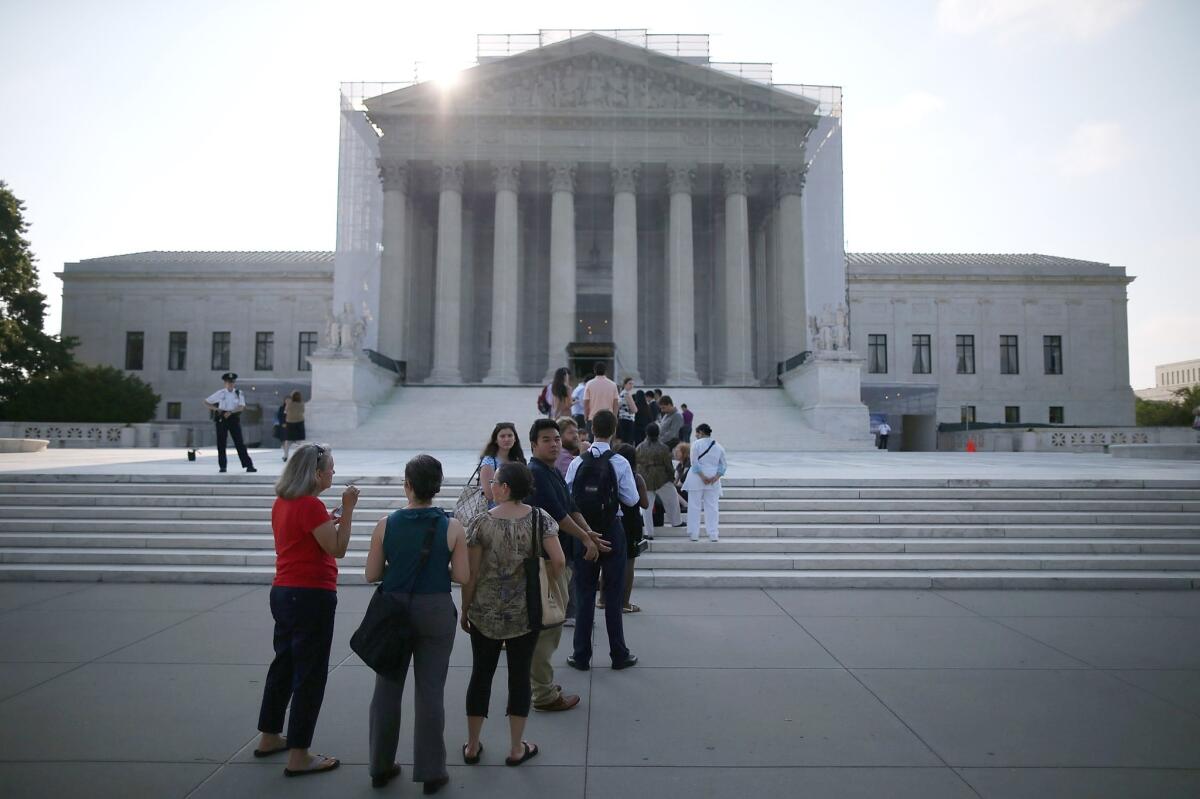In Aereo battle, articles by Ruth Bader Ginsburg’s daughter cited

In their 65-page briefing filed Monday to the Supreme Court, broadcasters -- including ABC, CBS, NBCUniversal, Fox and Los Angeles Times parent Tribune Co. -- cited work critical of a lower court ruling favoring Aereo by Jane Ginsburg, a professor at Columbia University’s School of Law and daughter of Justice Ruth Bader Ginsburg.
Broadcasters are hoping that the daughter of a Supreme Court justice can help them convince the high court that Aereo -- the start-up service that streams local TV signals via the Internet -- is illegal and needs to be shutdown.
In their 65-page briefing filed Monday to the Supreme Court, broadcasters -- including ABC, CBS, NBCUniversal, Fox and Los Angeles Times parent Tribune Co. -- cited work critical of a lower court ruling favoring Aereo by Jane Ginsburg, a professor at Columbia University’s School of Law and daughter of Justice Ruth Bader Ginsburg.
In an April 2013 article for the Media Institute that was cited twice, Ginsburg called a ruling in support of Aereo by the U.S. 2nd Circuit Court of Appeals, a “decision so inconsistent with statutory text and policy as to inspire surmise that the ruling was an April Fool’s prank.”
ON LOCATION: Where the cameras roll
The Media Institute is a nonprofit think tank whose board of trustees is filled with senior media industry executives including NBCUniversal Senior Vice President Meredith Attwell Baker and CBS Senior Vice President John Orlando.
The briefing also cites another Media Institute piece by Ginsburg about international copyright law and Aereo. Ginsburg said she writes a bimonthly column for the Media Institute’s intellectual property issues Web page but otherwise has no ties to the organization. She said she believed that contributors receive an honorarium of $1,000 for six columns per year.
The broadcasters are hoping to convince the Supreme Court that Aereo -- which charges consumers $8 to $12 a month for its service that includes a cloud-based digital video recorder -- violates copyright law. In their Monday filing, broadcasters argued that Aereo is a business “model premised on massive and unauthorized commercial exploitation of copyrighted works, where the prices of competitors are undercut because they are licensed and pay fees.”
GRAPHIC: Faces to watch 2014 | Entertainment
Broadcasters, who are not compensated by Aereo, added that the service undercuts laws on the book allowing broadcasters to charge pay-TV distributors to carry their signals.
Aereo has countered that consumers “have a fundamental right to watch over-the-air broadcast television via an antenna and to record copies for their personal use.”
Attorneys for the plaintiffs declined to comment on the use of Ginsburg’s article in the filing.
ALSO:Supreme Court to hear Aereo case
Federal court in Utah sides with broadcasters vs Aereo
Aereo founder says service is a friend to broadcasters
Follow Joe Flint on Twitter: @JBFlint.
More to Read
From the Oscars to the Emmys.
Get the Envelope newsletter for exclusive awards season coverage, behind-the-scenes stories from the Envelope podcast and columnist Glenn Whipp’s must-read analysis.
You may occasionally receive promotional content from the Los Angeles Times.







